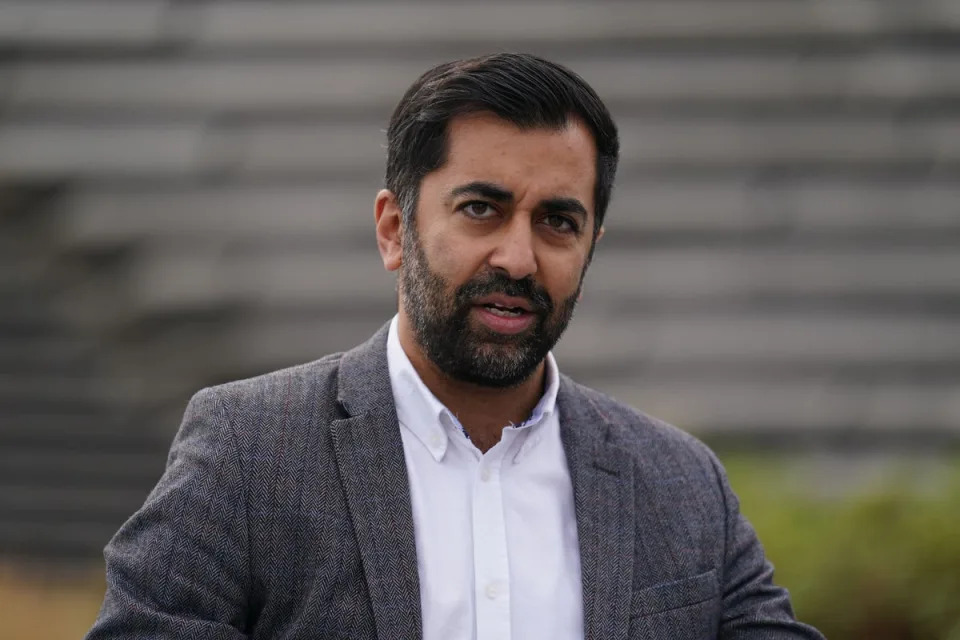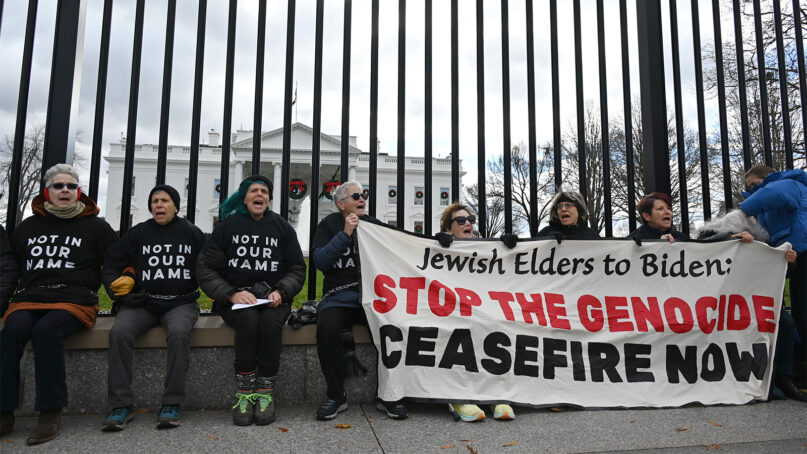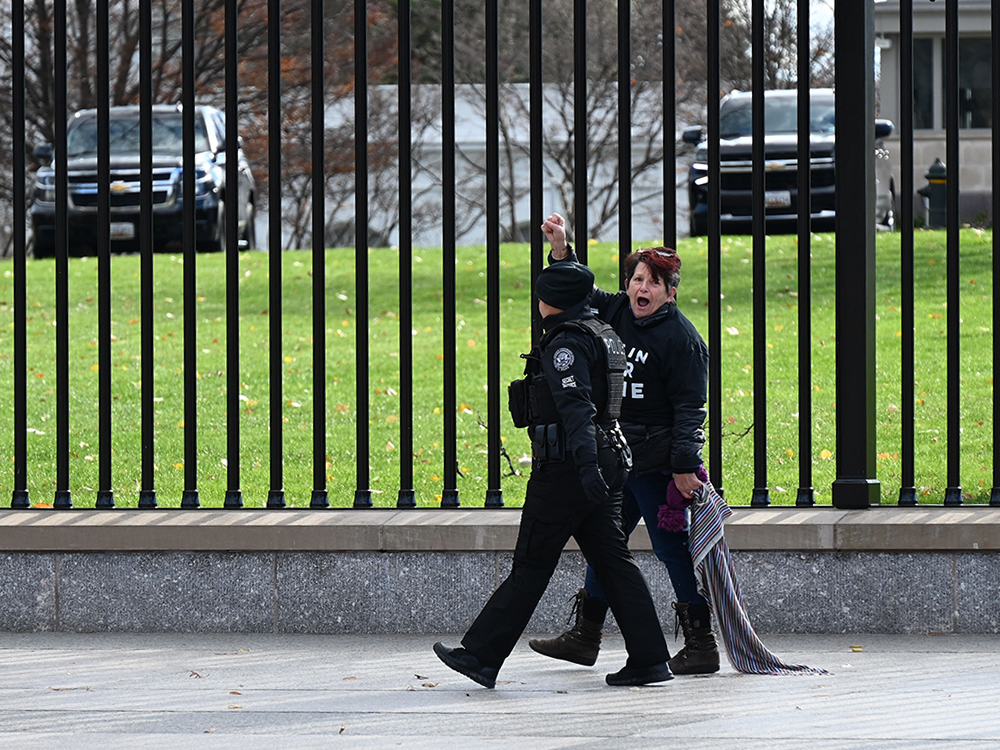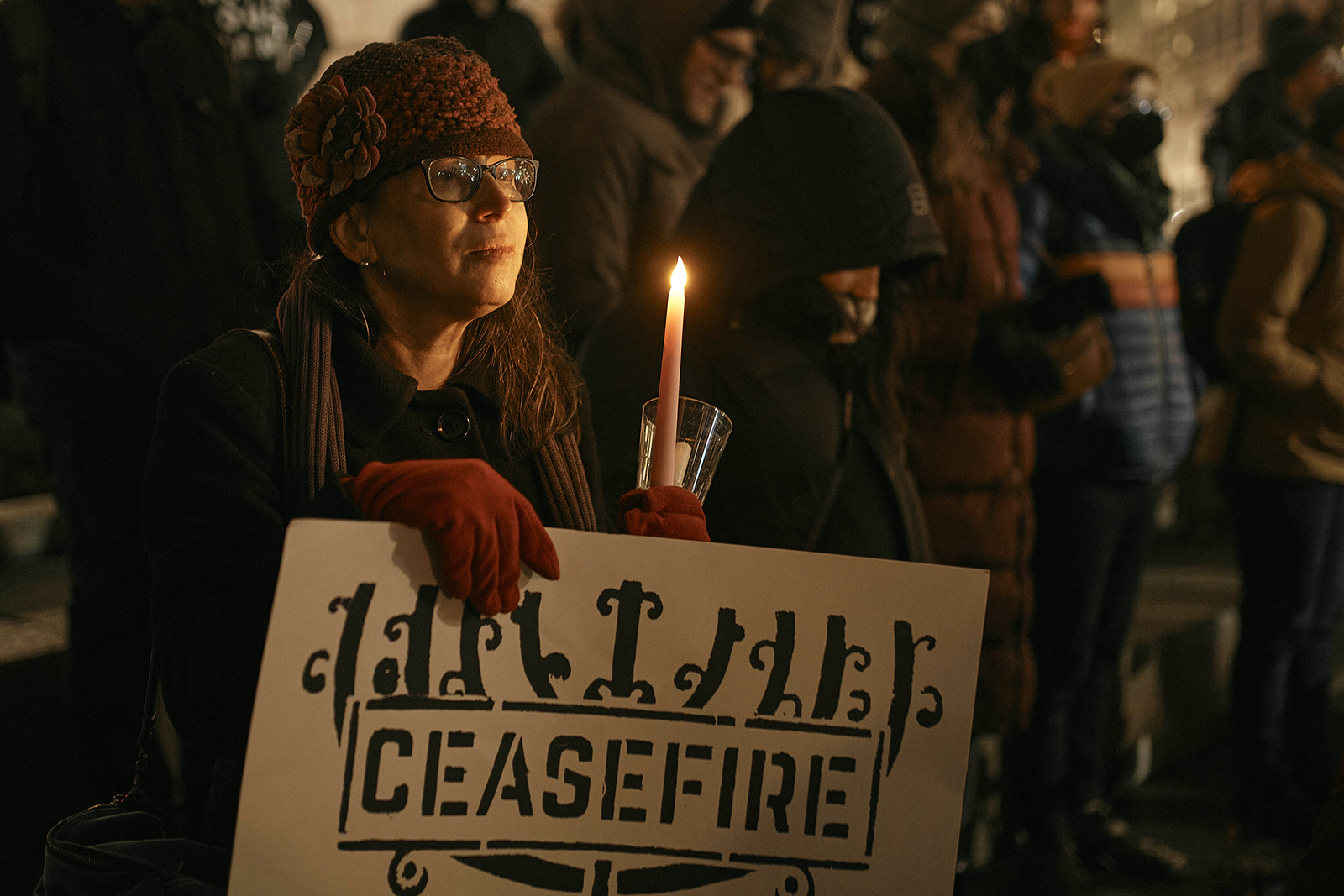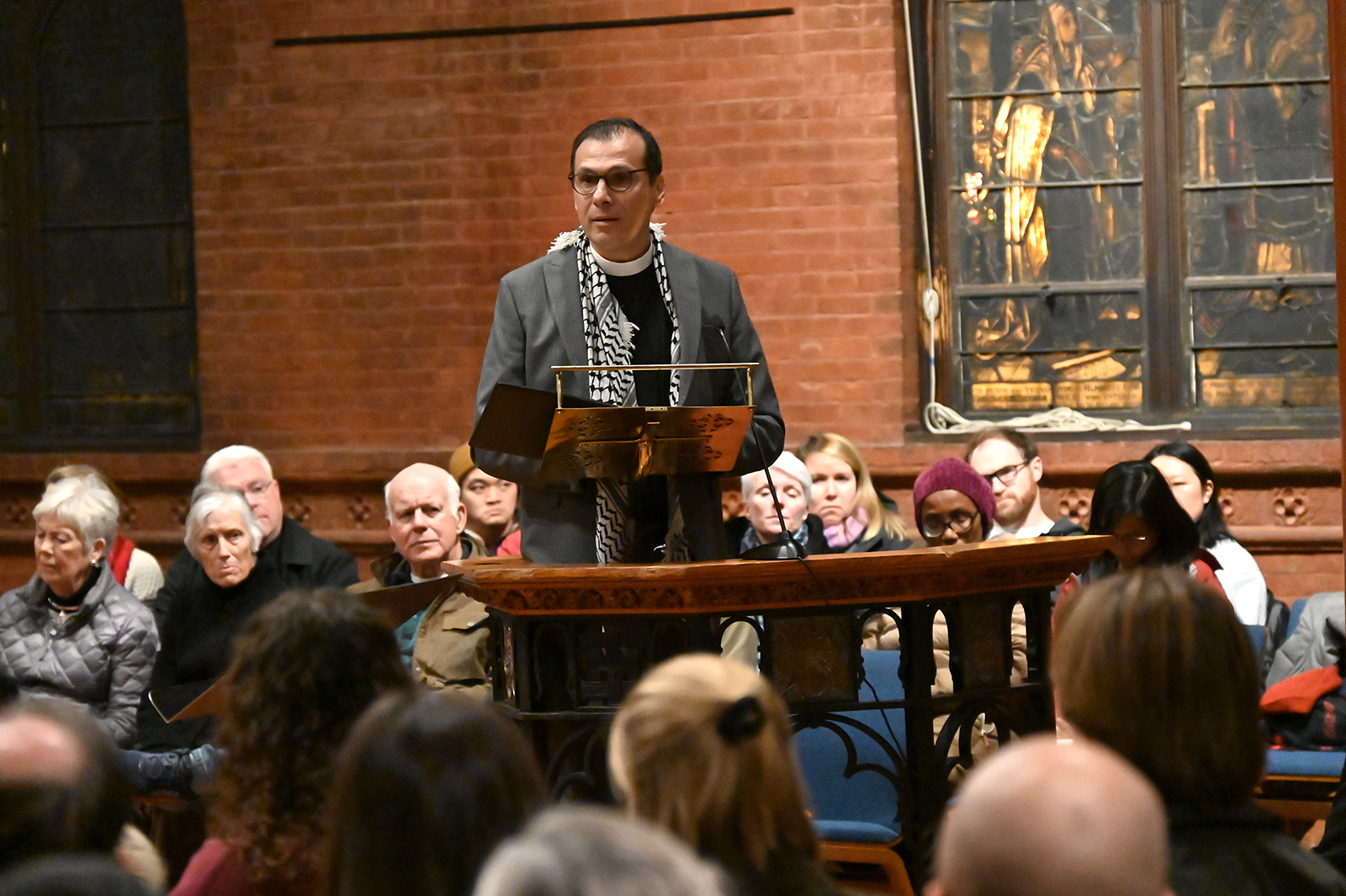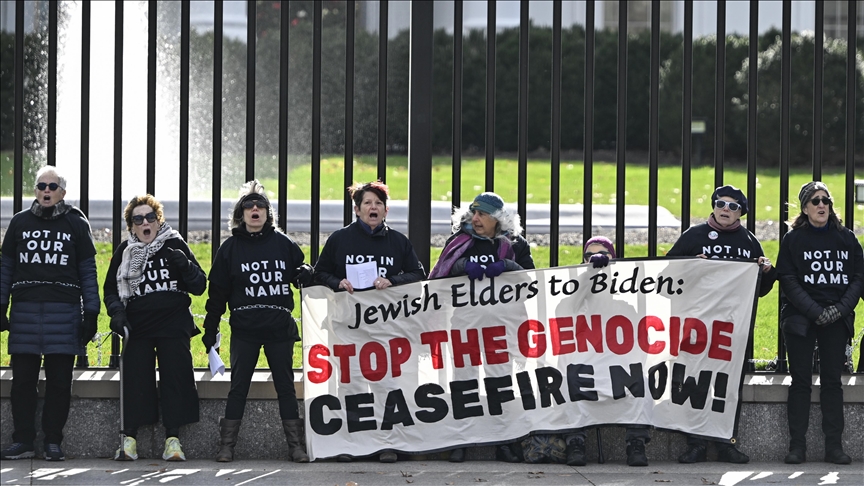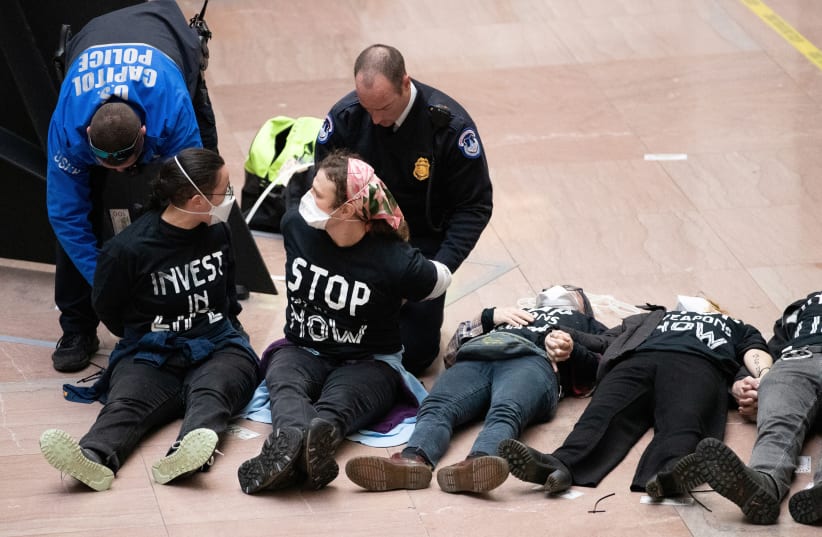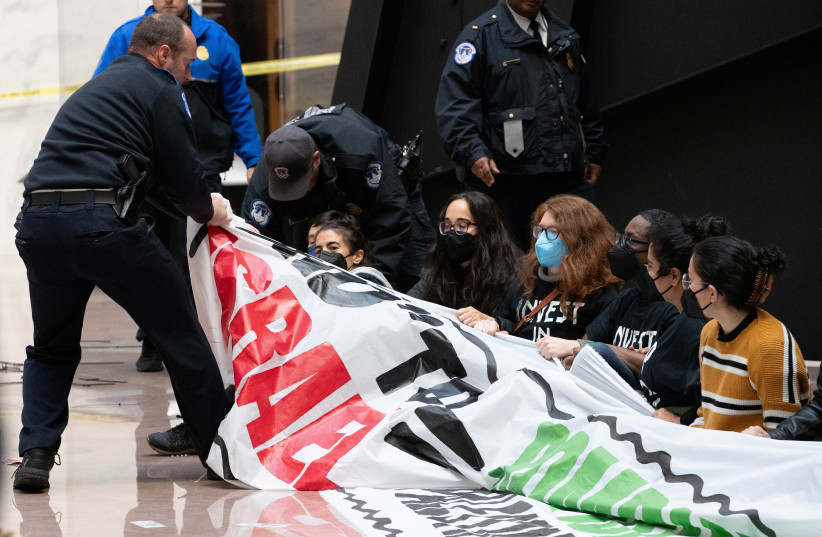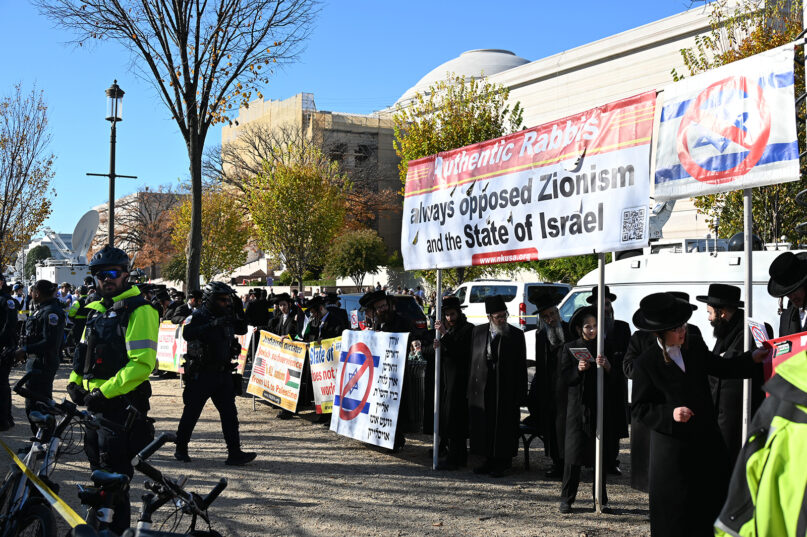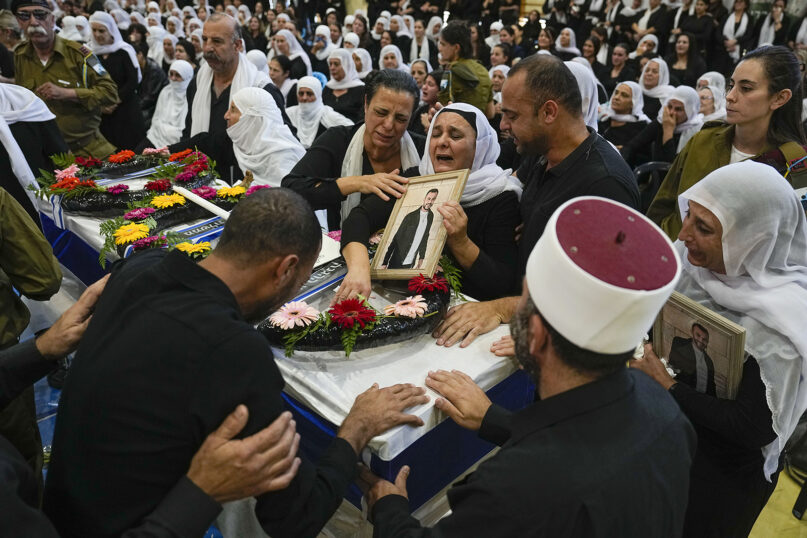(RNS) — As thousands of Israelis gathered in Tel Aviv Nov. 24 to celebrate the return of the first batch of hostages freed amid Israel’s ceasefire agreement with Hamas, the crowd broke into applause at the sight of a group of men, sheikhs in long, flowing robes and white turbans.
These were not leaders of Israel’s Arab Muslim minority but of the Druze — adherents to a syncretic religion native to the Levant that broke from Shia Islam in the 11th century and holds reverence for not only Muhammad, Jesus and figures of the Hebrew Bible such as Jethro, but also for Greek philosophers like Pythagoras and Plato as prophets.
Today, the Druze community is estimated at 800,000 spread over Syria, Lebanon, Jordan and Israel. The vast majority of Druze live in southwest Syria, followed by Lebanon and then Israel, which is home to around 150,000.
In the more than 50 days since war broke out between Israel and Hamas in the Gaza Strip, Israel’s Druze minority joined their Jewish countrymen in participating in the war. Of the 104 IDF soldiers who died in combat since the war began, at least six have been Druze, say community members.
“In this war, the Druze view themselves as proud Israelis,” Anan Kheir, a lawyer and community activist from the majority-Druze village of Peki’in in northern Israel, told Religion News Service. “We don’t see any difference between the Druze soldier and the Jewish soldier.”
“If you go all over our towns, you will see the Israeli flags at each corner,” Adi Hassan, a Druze man from Daliat al-Carmel, Israel’s largest Druze community, told RNS, adding, “I can tell you that we are more patriotic than the Jews themselves.”
Druze communities have also dived into volunteer efforts to support the hundreds of Israelis displaced from the country’s south. In Daliat al-Carmel, according to the Jerusalem Post, a center was set up where Druze, as native Arabic speakers, combed through videos shared by Hamas and on Palestinian media since Oct. 7 to aid Israeli intelligence in locating hostages and identifying the perpetrators of the attack.
Despite their patriotism, many Druze feel their place in Israel has been overlooked — a concern that has grown since the passage of the controversial Nation-State Law five years ago.
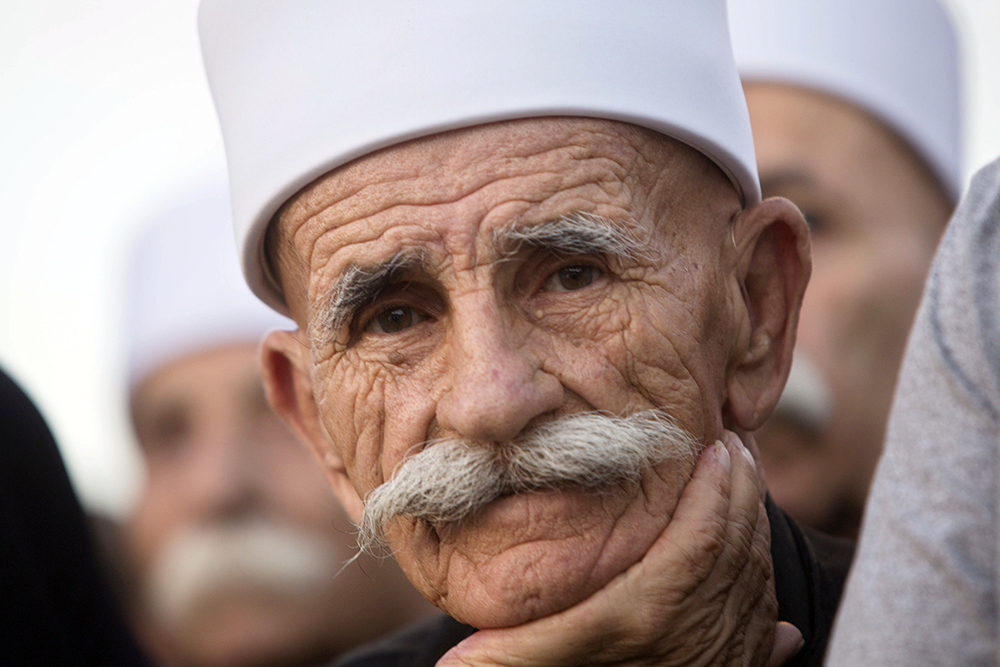
An Israeli man from the Druze community participates in a rally against Israel’s Jewish Nation bill in Tel Aviv, on Aug. 4, 2018. Thousands of members of Israel’s Druze minority and their Jewish supporters packed a central Tel Aviv square to rally against a contentious new law that critics say sidelines Israel’s non-Jewish citizens. (AP Photo/Sebastian Scheiner)
That law, many Druze feel, cut them out of Israel’s national identity.
“Now is the time for the government and the Knesset to initiate a change to the Nation-State Law and repair the historical distortion regarding the Druze community while anchoring the community and its rights in legislation,” Sheikh Muwafaq Tarif, the spiritual leader of the Israeli Druze community, said in a letter sent last month to Israel Prime Minister Benjamin Netanyahu and opposition leader Yair Lapid.
“Let us fix the Nation-State Law at this moment to make it clear that in life and in death, we are equal,” Lapid said in response to the letter.
The Nation-State Law, which amended Israel’s basic laws — the closest thing the country has to a constitution — codified Jewish symbols, such as the Star of David and menorah, as Israel’s national symbols, Hebrew as its national language and Jewish festivals as its national holidays.
The bill also downgraded Arabic from an official language of the state to one of just a “special status” and, most controversially, codified that the right to national self-determination in Israel belonged to Jews and Jews alone.
For many Druze, an Arabic-speaking minority in Israel, the bill was seen as an insult and ignorant of the role the Druze had played in Israel’s military history.
“We are very frustrated about this,” Hassan said. “We feel that we are equals. We do our duties, serve in the army, pay taxes, be good citizens and follow the laws
“This law was no more than a declarative law, there was no content to it,” Hassan added. “I don’t think the lives of Druze in Israel changed from before and after, but it gave a sore feeling. Suddenly you feel that you are not equal, and this is the main issue.”
Unlike Arabic-speaking Christians and Muslims in Israel, who still largely identify as Palestinian and are exempt from military service, Druze have fiercely adopted Israeli identity and not only serve in the IDF — under a mandatory conscription law like Jewish Israelis — they do so at higher rates than Jews, especially in combat units and the officer corps.
Yet the law treats them as second-class citizens, said Kheir.
“We’re integrated in the Israeli community, we’re a proud part of Israel, we have soldiers who lost their lives. So where are we in this?” he added.
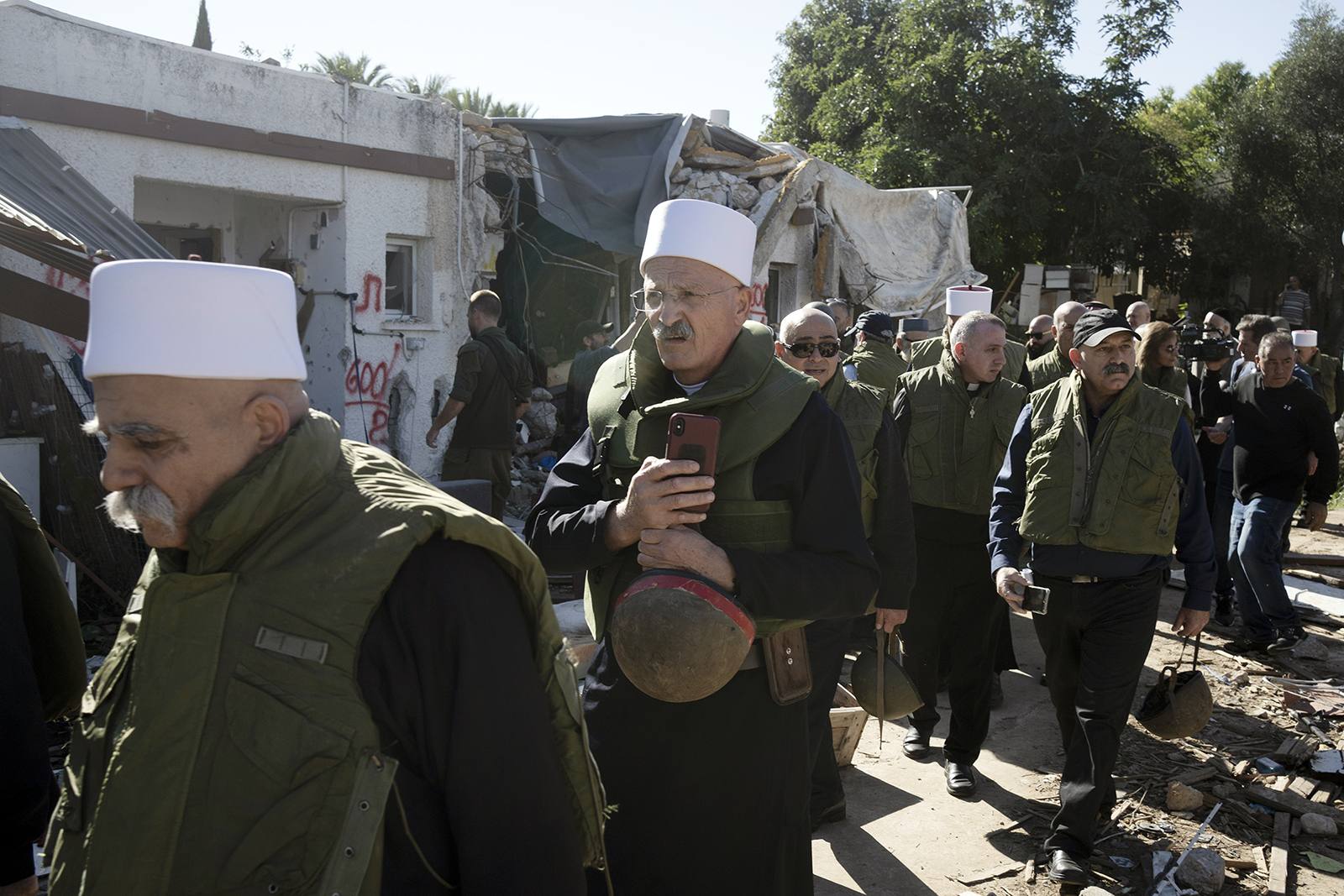
Druze faith leaders tour Kibbutz Kfar Azza with their Muslim, Jewish and Christian counterparts ahead of an interfaith joint prayer near the Israel-Gaza border, Wednesday, Nov. 29, 2023. (AP Photo/Maya Alleruzzo)
The Nation-State Law is not the only issue Israel’s Druze have with the government. Many feel that Druze communities, mostly in Israel’s north in the area around Mount Carmel, have not received equal funding for education or infrastructure projects.
“Over the years, successive Israeli governments have treated the Druze with respect only when Druze soldiers have fallen in battle and/or on Memorial Day,” Amal Asad, an Israeli Druze and former IDF general, wrote in an op-ed in Haaretz earlier this week. “Right now, the absurdity is that equality between Druze and Jews exists in only two places: in the army and in the cemeteries
“A Druze pilot or Druze commander of an elite military unit or Druze ambassador or Druze high-tech developer is not going to say ‘thank you’ for getting an electricity hookup or a paved road,” Asad added.
Tarif’s letter has sparked a response from Israeli lawmakers.
“The Druze people are a valuable community,” Netanyahu acknowledged after the letter went public, according to the Jerusalem Post. “They fight and they die. We will give them everything they are due. We will find the way to do it. It’s essential.”
Lawmakers in Netanyahu’s Likud party have floated a bill to add another basic law — which would clarify the position of the Druze community, though what exactly it would entail has not yet been revealed. Other Knesset members noted that such a law should include the Bedouin community who also serve in the IDF.
For many Druze, though, that was not seen as enough.
“If you want to solve a problem, you need to address the problem itself,” Kheir said. “The problem is called the Nation-State Law, so what I think needs to be done is amending the Nation-State Law.”
Hassan, however, is hopeful that the realities of the current war will be enough to spark a change in attitude.
“I have no doubt that our leadership and the government will find the solution because it’s something that is important for both sides. Both sides really do want to cancel this feeling of frustration among our people,” he said. “I think that the Jews in Israel really appreciate what we are doing and, when speaking, you can see that they really admire the Druze strength, patriotism and solidarity.”



